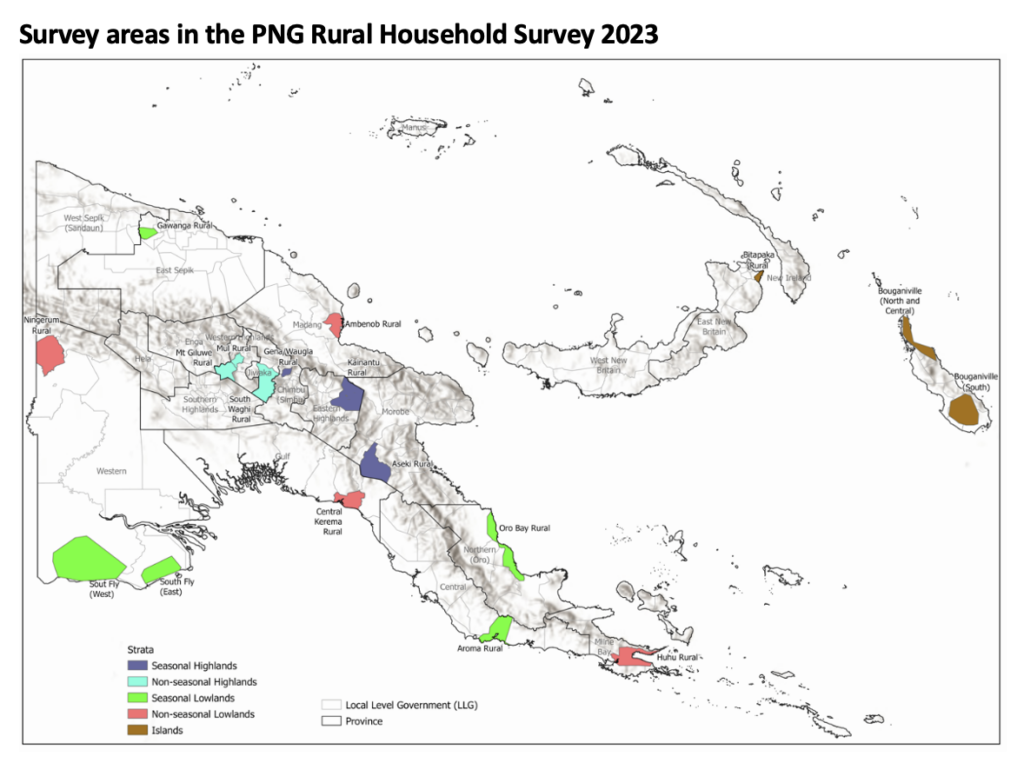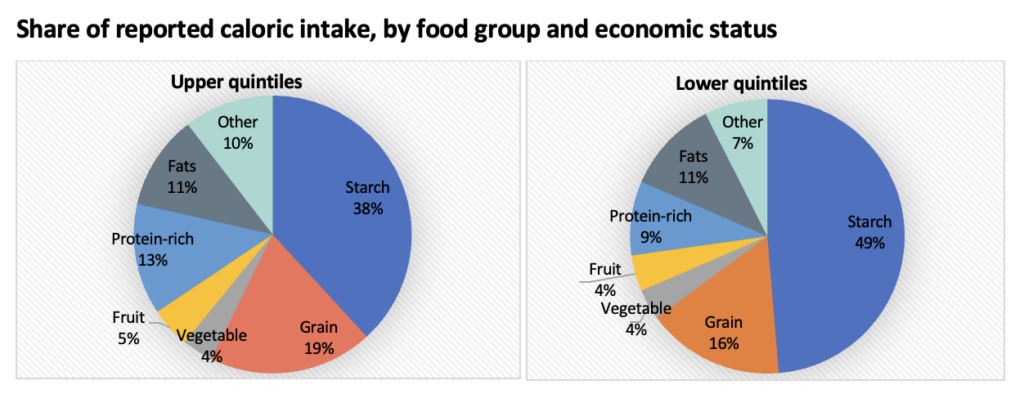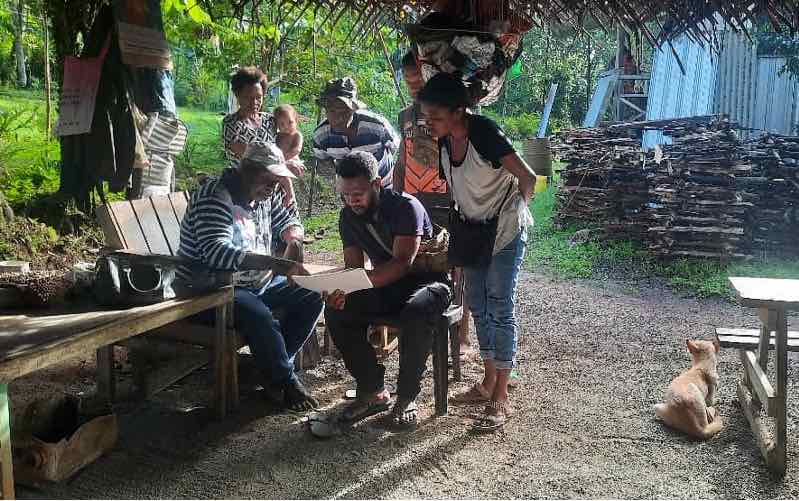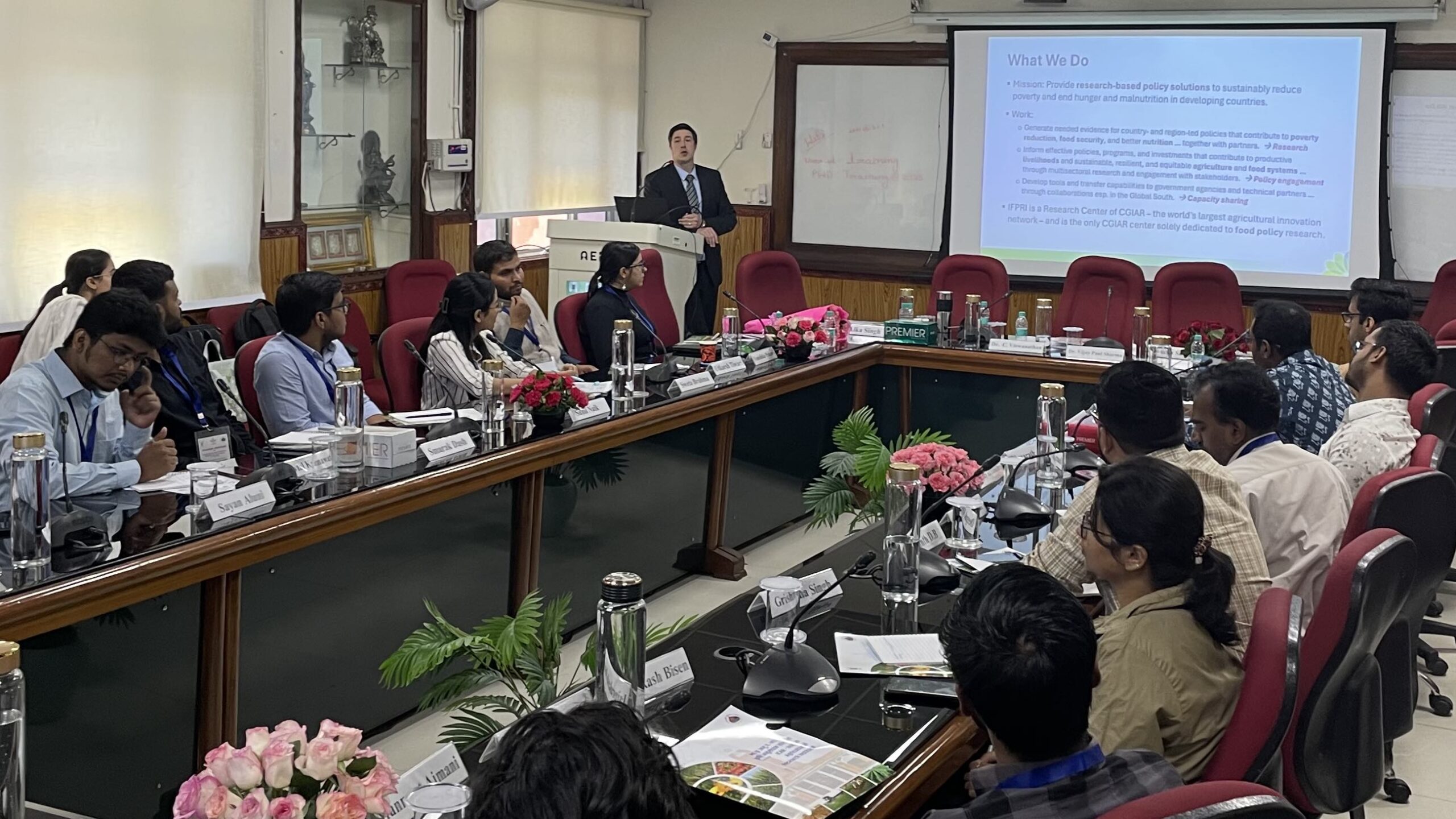A new IFPRI survey of rural households in Papua New Guinea (PNG)—the most expansive consumption expenditure survey in more than a decade—shows the continuing predominance of subsistence agriculture and that rural diets remain reliant on inexpensive, starchy staple foods.
The 2023 PNG Rural Household Survey, funded by the Australia Department of Foreign Affairs and Trade, addresses a recognized lack of comprehensive and up-to-date data on rural household agrifood systems in PNG. It collected key information on rural livelihoods, consumption and expenditure trends, climate shocks, and dietary and child growth indicators. The survey was conducted from May to December 2023 across 14 provinces representing five agro-ecological zones (Figure 1). In total, the survey covered 2,699 households in 270 villages.
Figure 1

Source: 2023 PNG Rural Household Survey
The PNG Rural Household Survey Report was launched March 18 at an event in Port Moresby, PNG organized by IFPRI, the PNG Prime Minister National Executive Council (PMNEC), and the PNG Department of Agriculture and Livestock (DAL). Both DAL Secretary Sergie Bang and Health Secretary Osborne Liko provided opening remarks, welcoming the significant effort put forth to collect rural livelihood data across the country. PMNEC Chief Secretary Ivan Pomaleu’s closing remarks underlined the importance of data and analysis to inform policy and investments in the rural sector.
The survey findings highlight the rural population’s reliance on subsistence agriculture, with 68% of the household sample engaged solely in own-farm agriculture activities. Non-farm enterprises were the second most common form of employment, focused predominantly on non-agricultural trade of baked goods and sales of other non-food items in small canteens or trade posts.
Rural PNG’s reliance on own-farm agriculture has strong linkages to food consumption trends (Figure 2); 75% of total household expenditure is dedicated to food (including the value of food grown and consumed on-farm). Relatively inexpensive, starchy and grain-based staple foods constitute 65% and 57% of the total caloric intake of lower-income and upper-income households, respectively. In contrast, costlier nutritionally-rich items are a more limited part of rural diets. Protein-rich foods, comparatively more expensive in rural PNG, contribute only 9% and 13% to the total caloric intake for lower-quintile and upper-quintile households, respectively, while fresh produce accounts for 8% and 9% percent, respectively.
Figure 2:

Source: Authors’ calculations using data from the 2023 PNG Rural Household Survey. Note: Lower quintiles include households in the bottom 40% of the distribution of per-adult-equivalent consumption expenditure in real Papua New Guinea kina (PGK). Upper quintiles include households in the upper 60% of the distribution of per-adult-equivalent consumption expenditure in real PGK.
The survey represents an important effort in collecting a wide breadth of information on the overall livelihood strategies and nutritional status of rural households. Ongoing work in collaboration with a variety of government partners and research institutes will augment this survey with additional in-depth data collection and analysis to examine specific components of agricultural and rural livelihood strategies and how they are linked to overall nutrition, food security, and welfare outcomes.
Trudie Sikas-Iha is an IFPRI consultant and Program Coordinator; Emily Schmidt is a Senior Research Fellow with IFPRI’s Development Strategies and Governance Division.
This post is based on research that is not yet peer reviewed. This work was funded by the Australia Department of Foreign Affairs and Trade.
Referenced report:
Schmidt, Emily; Fang, Peixun; Jemal, Mekamu; Mahrt, Kristi; Mukerjee, Rishabh; Rosenbach, Gracie and Yadav, Shweta. 2024. 2023 PNG Rural Household Survey Report. Washington, DC: International Food Policy Research Institute. https://hdl.handle.net/10568/140437







